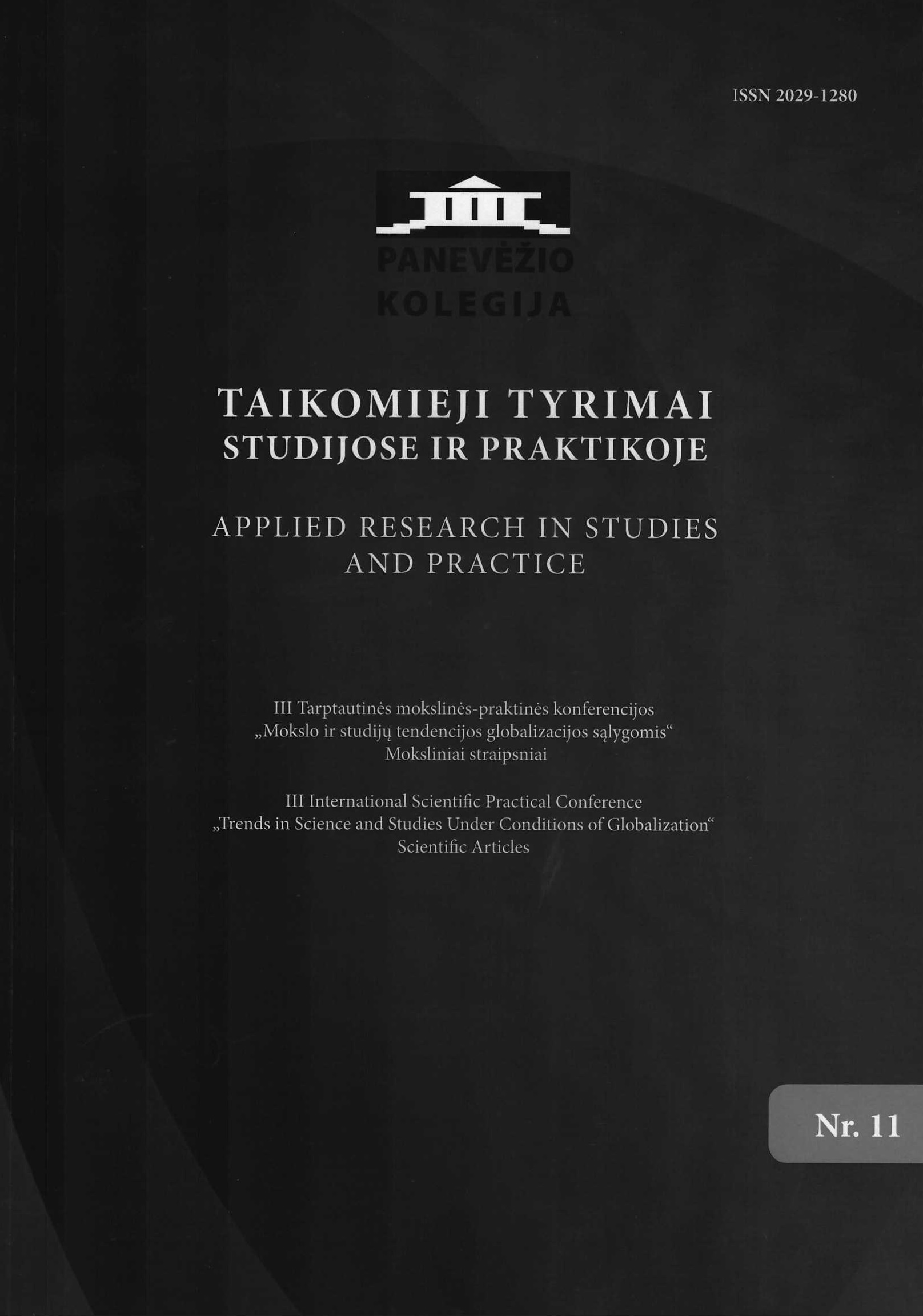Specialisto rengimas modernioje visuomenėje: grėsmės susijusios su studijų kokybės koncepcijos pasirinkimu
Specialist Training in Modern Society: the Risk Associated with the Concept of the Quality of Studies
Author(s): Gintautė ŽibėnienėSubject(s): Education, Sociology of Education
Published by: Panevėžio kolegija
Keywords: student;specialist;the conception of study quality
Summary/Abstract: The article analyzed the problematic issues: whether the concept of quality of studies when quality as fulfilment and/or exceeding client‘s needs or raising these concept of quality is the risk for specialist training in modern society. And important question is or a student, especially in the first year, to realize what his learning needs will help to be a good specialist? The aim is to discuss about risk of specialist training in modern society according the risk associated with the Concept of the Quality of Studies choice.Quality as fulfilment and/or exceeding client‘s needs - selecting this concept of quality is particularly important to identify the education service users, identify their needs, explore their expectations to determine how much education represent their needs, explain the cases of dissatisfaction. However, it is still widely debated whether the student can actually be treated as a customer and whether the study can be considered a service. When this conception is chosen, it is very important to identify clients/users of this education service, to define their needs, to analyse if their expectations were met, to find out if their needs are reflected and to investigate cases of dissatisfaction.Methods: scientific literature analysis, document analysis, interviews. Research instrument: questionnaire, consisting of a closed-answer type questions. The questionnaire was designed by authors on the basis of their theoretical investigations of the topic. Sample. 432 students from X higher school. We choose first-year undergraduates because their expectations of study still do not rely on the quality of their prior study experience. In comparison to them, we have chosen first-year graduate students, since their concept of quality and expectations for studies are already based on their own previous study experience. The survey sample – 432 respondents (228 undergraduates and 204 graduate students). Statistical methods of data analysis. Cronbach's alpha, χ2 test, comparison of distributions is done using the Mann-Whitney test, descriptive statistics. Data were analyzed using SPSS software package, version 15. Ethics of research. Research were based on free-will principle to take part in the survey. The study was conducted at the student’s learning environment, at their convenient time.The twenty-first century universities are also called as learning universities, emphasize attention on students, the quality of studies, which became an asset, and is associated with prestige of higher schools, competitiveness and expectations of successful future. A student, being a member of higher schools community or their client, after weighing the expected and experienced quality, can define what high-quality service is. But the student's concept of client and concept of quality of studies when quality as fulfilment and/or exceeding client‘s needs can cause problems related with the academic community the lack of cooperation, problems of students and other members of the academic community needs and expectations of the mismatch or even contradictory decision, as well as to respond to the needs of society - a potential hasty, ill-judged and the lack of preparation of the new study programs are implemented.Student survey revealed, that the most preferable concept of quality of studies for the both group of students is the quality as fulfilment and/or exceeding client‘s needs (they were able to gather from 7 positions, when 1 – quality as improvement, quality as development, 2 – quality as excellence, 3 – quality as transformation, 4 – quality as fulfilment of requirements, 5 – quality as fulfilment and/or exceeding client‘s needs, 6 – quality as fitness of purpose, fitness for purpose, 7 – quality as value for money. Both undergraduate and postgraduate students agreed that the mostly responsible for the quality of studies are professors, followed by the administration. The least responsibility for the quality of studies the postgraduates give for the students. It shows that some students do not want to take care of the quality of the study.The undergraduates more than the postgraduates see the value in the acquisition of classical knowledge, diversity of optional study subjects, possibilities at least one semester to study abroad, the focus on the transfer of knowledge. There are given only those aspects, for which the difference of the evaluation between two groups is greater than 10 %. Some students think, that the study quality are when learning process is easy, convenient and only learn skills required to work. Not all students are aware of the importance of general competencies. However, this concept is contrary to the concept of human development in modern society concept.A student could be treated as a developer of service who cooperates with an academic community and together with this community gets to know what high-quality studies and services are and is the one who participates in discussions and analyses. Within this context, the conception of quality as fulfilment and/or exceeding clients’/consumers’ needs should be implemented in conjunction with other conception(s) of study quality.
Journal: Taikomieji tyrimai studijose ir praktikoje
- Issue Year: 11/2015
- Issue No: 1
- Page Range: 30-36
- Page Count: 7
- Language: Lithuanian

